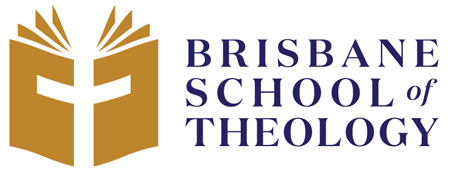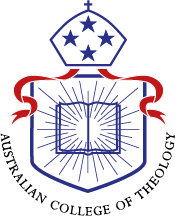Bachelor of Christian Studies
UNDERGRADUATE
- 24 Units
- 3 yrs FT | up to 6 yrs PT
- 288 Credit Points
- FEE HELP
Course Description
If you’re looking to get serious about in-depth biblical study, and have a desire to combine it with another discipline then the Bachelor of Christian Studies is exactly what you need.
You will study at least one year full-time equivalent of undergraduate degree-level study in a non-theological field, of which at least 75% must form a coherent area of study (e.g., Psychology, Business, Education etc) at an Australian University, and you may also complete it at the same time as you undertake theological units with us.
The Bachelor of Christian Studies provides flexibility for people who would like to incorporate a Christian perspective in their chosen career.
- Introduces students to the sources and content of the Christian story and message, and provides training which emphasises application of this story to life in the world, including professional and vocational life.
- The course will be based on the disciplines by which knowledge of God is developed and articulated:
- Bible & Languages (LA, OT, NT, BB) and
- Christian Thought & History (TH, CH, PE)
- It will also provide an approach to synthesising this understanding with particular occupational and/or life interests in ‘integrated studies’ (IN).
- Through elective units students can:
- Develop foundational understanding in the Bible and Christian Thought & History
- Develop particular ministry skills in the three areas of the field of Ministry & Practice
ATAR: Completion of Year 12 in the last two years with an ATAR 65 or above; OR
Previous Qualifications: Successful completion of a qualification at AQF Level 5 or above; OR
Demonstrate Academic Suitability for course: Test, Brief Essay, or Interview.
Language Qualifications for NESB: IELTS 6.5 overall with minimum of 6.0 in each subtest OR 10 years in Australia with English being the language primarily spoken both at home and work.
Australian College of Theology Coursework Course Enrolment Policy
24 units | 288 credit points | 3 yrs FT, up to 6 yrs PT | On-campus & off-campus live stream
Bachelor of Christian Studies Course Structure:
2 units from Old Testament Introduction
2 units from New Testament Introduction
4 units from Christian Thought (1 from History, 1 from Theology)
2 units from Exegesis
1 unit Independent Study project that relates to the student’s non-theological area of study to the Christian faith
6 elective units
Units in this course are completed at Level 5 and above, course must include no more than 12 units at Level 5, and including at least 6 units at Level 7 or above. Units codes ending in 512 = Level 5, 612 = Level 6, 712 = Level 7.
Non-Theological Study
You will also need to complete one year equivalent of full-time study at an Australian University in your non-theological area of study: applied as 96cps.
Below are the units you can choose from each category.
Biblical Introduction
Old Testament introduction
Old Testament Foundations – OT001-512
Old Testament Prophets and Writings – OT002-512
New Testament introduction
Jesus and the Gospels – NT001-512
Early New Testament Church – NT002-512
Christian Thought
History
Christianity in History to 1550 – CH001-512
Christianity in History from 1550 to Modern Times – CH002-512
Theology
The Knowledge of God – TH001-712
Creation and the Fall, the Person and Work of Christ– TH102-712
The Doctrines of Grace and Eschatology – TH003-712
The Church and its Ministry– TH104-712
Philosophy & Ethics
Christian Ethics – PE001-512
Christian Apologetics – PE206-712
Exegesis
Old Testament exegesis
Pentateuch – OT008-712/OT009-712 (Hebrew exegesis available)
Former Prophets: 1 & 2 Samuel – OT010-712/OT011-712 (Hebrew exegesis available)
Exilic Prophecy (Isaiah 40-55) – OT014-712
The Psalms OT020-712
New Testament exegesis (in English or Greek)
The Synoptic Gospels: Luke – NT008-712/NT009-712
The Fourth Gospel – NT016-712/NT017-712
The Pastoral Epistles – NT014-712/NT015-712
Pauline Theology and Romans – NT018-712/NT019-712
Paul and Corinthian Christianity – NT010-712/NT011-712
Ministry & Practice
Evangelism and mission
Mission Perspectives – EM001-512
Principles of Evangelism – EM024-512
Ministry in a Culturally Diverse Context – EM018-712
Contextual Asian Ministry – EM031-712
Cross-Cultural Field Education – EM040-712
Pastoral and church-focused ministry
Pastoral Skills and Methods– PC003-712
Preaching I – PC047-712
Spiritual Formation for Professional Ministry – PC008-712
Congregational Field Education – PC092-712
Practical Ministry Field Education – PC094-712
Child Abuse in Christian Communities: Prevention and Response – PC134-712
Languages
Biblical Hebrew (A) – LA003-612
Biblical Hebrew (B) – LA004-612
New Testament Greek (A) – LA005-612
New Testament Greek (B) – LA006-612
Note: Biblical Introduction, Church History and Greek A & B are offered every year, while the other units run on a two-year cycle. Please refer to the college timetable to find out what is being offered each year.
A full-time study load is 4 units per semester. You can be full-time and study 3 units per semester; it will just take you longer to finish the course. A part-time study load is 1 or 2 units per semester.
Course Rules
- Maximum concurrent enrolment load: 60 cps
- There is a pre/co-requisite for Level 7 units: 96cps, including 36cps at Level 6
Discipline knowledge and understanding
1. Demonstrate functional knowledge and understanding of ‘Christian Studies’ as an academic discipline
2. Discuss the interaction between Christian Studies and at least one other non-theological field of knowledge and understanding
3. Apply the functional spiritual and ethical implications of Christian Studies and at least one other non-theological field of knowledge and understanding
Inquiry and analysis
4. Collect, analyse, evaluate and synthesize recognised scholarship in Christian Studies and other non-theological fields of knowledge and understanding in inquiry-based learning
Problem solving and integration
5. Synthesize Christian Studies with at least one other non-theological field of knowledge and understanding
6. Construct evidence-based perspectives on functional issues in Christian Studies and other non-theological fields of knowledge and understanding by using recognized source materials and relevant scholarly literature, evaluating alternative interpretations and drawing reasoned conclusions
Communication
7. Present functional ideas, knowledge and principles in Christian Studies and other non-theological fields of knowledge and understanding to, and engage with, different audiences using a variety of formats
Teamwork and professional practice
8. As leader and in groups, apply functional ‘Christian Studies’ understanding in formal ministry contexts, professional and vocational life, and the wider community
Engagement with the world
9. Engage with the functional challenges of contemporary Christianity, society and the wider world
Continuous learning and professional development
10. Demonstrate a capacity for independent reflection and learning to sustain personal and professional development in Christian, professional and vocational life and ministry
BST Timetable, Calendar and Fees
This course is FEE-HELP and Centrelink approved.
What is FEE-HELP?
FEE-HELP is a loan that helps eligible fee paying students pay their tuition fees.
For eligibility and more information on FEE-HELP go to:
https://www.studyassist.gov.au/help-loans/fee-help
Claudia Palma Vallejos
Former PA to the Branch Manager of CMS Qld & Northern NSW
Claudia: “BST was a real blessing to me. The friends I made will be a part of my life for a long time, and the staff and faculty were a source of greate support and guidance. The college community really made my learning experience even greater.”




